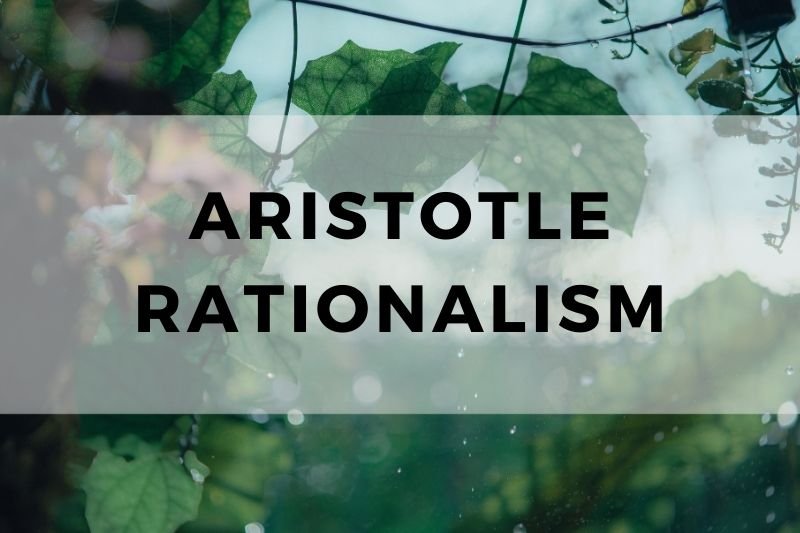
Aristotle’s approach to knowledge emphasizes the importance of both reason and observation. He believed that understanding comes from combining logical thought with sensory experiences. Unlike philosophers who relied solely on abstract reasoning, Aristotle grounded his ideas in the physical world.
His focus on empirical evidence set the stage for scientific methods and practical applications in ethics, politics, and education. While his philosophy has its critics, Aristotle’s integration of logic and observation remains influential. By studying his approach, we gain a clearer perspective on the role of reason in shaping human understanding.
Aristotle’s Epistemology: The Foundation of Knowledge
Aristotle’s theory of knowledge stands in contrast to Plato’s. Where Plato emphasized reason alone, Aristotle valued both reason and sensory experience. He believed knowledge comes from the combination of rational thought and empirical observation. According to Aristotle, we learn by interacting with the world, not just by contemplating abstract forms. This approach is known as empiricism, which contrasts with rationalism. Aristotle’s epistemology shows a more practical path to knowledge. It focuses on observation, experience, and reasoning in equal measure. Understanding this balance is key to grasping his philosophy of knowledge.
The Role of Reason in Aristotle’s Philosophy
In Aristotle’s philosophy, reason (or nous) plays a critical role. However, it does not function in isolation. Reason helps us make sense of our sensory experiences. It allows us to form concepts and make logical deductions. Aristotle viewed reason as the tool that guides us to universal truths. But, unlike Plato, he did not see reason as a way to access an abstract, perfect realm. Instead, it helps us understand the nature of the world around us. Logical thinking and observation go hand in hand in Aristotle’s approach. For him, reason is not an abstract idea; it’s a practical tool for acquiring knowledge.
Aristotle’s Four Causes: Knowledge through Understanding the World
Aristotle’s Four Causes offer a framework for understanding the nature of existence and change. These causes work together to explain why things are the way they are. Here’s a deeper look at each one:
- Material Cause
The material cause refers to the physical substance from which something is made. For example, the material cause of a wooden chair is the wood itself. It answers the question: “What is it made of?” Without the material cause, an object could not exist in its current form. - Formal Cause
The formal cause is the design, structure, or blueprint of a thing. It’s what gives an object its identity and determines what it is. For a chair, the formal cause would be its design—its shape, size, and structure that make it recognizable as a chair. It answers the question: “What is its form?” The formal cause is what distinguishes one object from another. - Efficient Cause
The efficient cause explains how something comes into being or changes. It is the agent or process that produces an effect. In the case of the chair, the efficient cause might be the carpenter who shaped the wood into a chair. It answers the question: “Who or what caused it?” Without the efficient cause, the object would not exist or undergo any change. - Final Cause
The final cause is the purpose or goal of an object. It answers the question: “Why does it exist?” For a chair, its final cause is to provide a place to sit. Aristotle believed that everything in the natural world has a purpose or function, and understanding this purpose is essential to fully understanding an object.
By considering all four causes—material, formal, efficient, and final—Aristotle argued that we can gain a more complete understanding of the world. This holistic approach integrates both empirical observation and rational analysis, showing how reason helps us make sense of the natural world.
Aristotle vs. Other Rationalist Philosophers
Aristotle’s views on knowledge differ significantly from those of other prominent rationalist philosophers. While Plato’s rationalism emphasized reason as the sole path to understanding, Aristotle combined reason with sensory experience. This distinction set him apart from thinkers like René Descartes and Baruch Spinoza, who maintained that reason alone could uncover true knowledge.
- Descartes believed in cogito ergo sum (“I think, therefore I am”), relying on reason as the foundation of all knowledge. He argued that sensory experience could be deceptive, and only through clear and distinct ideas could true knowledge be obtained. Unlike Aristotle, Descartes doubted the reliability of sensory perception and prioritized rational deduction.
- Spinoza also emphasized reason, asserting that all knowledge is derived from understanding the nature of God and the universe. His rationalism led to a monistic view of the world, where everything is connected through a single substance. Spinoza’s approach was closer to Plato’s in that he believed reason could reveal universal truths, but it still diverged from Aristotle’s more empirical approach.
Aristotle’s insistence on the importance of sensory experience and observation contrasts sharply with the rationalist tradition, where reason is the sole means of acquiring knowledge. His focus on practical, empirical methods made him more grounded in the physical world, while thinkers like Descartes and Spinoza sought knowledge in abstract, intellectual realms.
Practical Applications of Aristotle’s Rationalism
Aristotle’s rationalism has wide-ranging applications in many fields. His balance of reason and experience offers a practical approach to decision-making and inquiry. Below are five areas where Aristotle’s rationalism plays a significant role.
#1. Ethical Decision-Making
Aristotle’s rationalism guides ethical decisions through reason and experience. His concept of the Golden Mean suggests that virtue lies between extremes. By using reason, individuals can determine the most ethical course of action. It requires practical judgment and the ability to understand the context of a situation. Ethical decisions are made not by rigid rules, but by thoughtful deliberation.
#2. Scientific Inquiry
In science, Aristotle’s rationalism emphasizes observation and logical reasoning. Scientific knowledge is built on empirical data, but reason is needed to interpret and make sense of it. Aristotle’s method of classification, based on careful observation of nature, laid the foundation for modern scientific thinking. Logical deduction helps us draw conclusions from our observations, making it essential for scientific progress.
#3. Education and Learning
Aristotle’s view of education emphasizes both rational thought and sensory experience. He believed that learning begins with sensory input, which reason then organizes into knowledge. Education should foster both intellectual and practical skills. Aristotle’s focus on developing reason encourages students to think critically and understand the world through observation and analysis.
#4. Political Theory and Governance
Aristotle’s rationalism also applies to political theory. He argued that governance should be based on reason and the consideration of human nature. In his work Politics, he discusses the best forms of government, emphasizing the importance of moderation and the common good. Rational thought is essential in creating laws and institutions that promote justice and societal well-being.
#5. Conflict Resolution
Aristotle’s approach to conflict resolution combines reason and understanding of human nature. He advocated for rational dialogue to resolve disputes. By focusing on logic and the interests of all parties, solutions can be found that balance fairness and practical concerns. Rationality helps identify the underlying causes of conflict and find common ground for resolution.
Criticisms of Aristotle’s Approach to Rationalism
While Aristotle’s rationalism has had a lasting impact, his approach has faced criticism over time. Below are some of the key critiques of his philosophy.
#1. Overemphasis on Teleology
One major criticism of Aristotle’s rationalism is his focus on teleology—the idea that everything has a purpose. Critics argue that this belief is overly simplistic and doesn’t account for the complexity of the natural world. In many cases, the idea of purpose seems forced onto natural processes that may not have a specific goal or end.
#2. Limited Empirical Validation
Although Aristotle emphasized empirical observation, his methods lacked the precision and systematic approach seen in modern science. Critics argue that his reliance on sensory experience alone often led to incorrect conclusions. His observations were limited by the tools and knowledge available at the time, which resulted in some inaccurate theories.
#3. Exclusion of Emotions in Rational Processes
Aristotle’s rationalism tends to exclude emotions from the decision-making process. Critics point out that human behavior is often driven by feelings, not just reason. This narrow focus on reason can overlook the complexities of human psychology and the role of emotions in moral and ethical decisions.
#4. Lack of Consideration for Social and Cultural Variability
Aristotle’s philosophy assumes a universal human nature, but critics argue that this view ignores the diversity of human cultures and societies. His ethical theories, particularly the Golden Mean, may not be applicable to all cultural contexts. The assumption of a one-size-fits-all approach to morality and ethics limits the applicability of his ideas.
#5. Ambiguity in Defining the “Golden Mean”
Aristotle’s concept of the Golden Mean is often criticized for its vagueness. While the idea of moderation between extremes sounds appealing, critics argue that it is difficult to apply consistently. What constitutes the “middle ground” in any given situation is subjective and open to interpretation, making it challenging to use as a clear guideline for ethical decision-making.
Closing Thoughts
Aristotle’s rationalism offers valuable insights into how we acquire knowledge and make decisions. His emphasis on reason, combined with empirical observation, provides a practical framework for understanding the world. However, his approach has limitations, particularly in its overreliance on teleology and lack of attention to emotions and cultural variability.
Despite these critiques, Aristotle’s ideas continue to influence fields like ethics, science, and politics. His balanced approach to knowledge encourages us to think critically and apply reason to both practical and intellectual challenges. Ultimately, Aristotle’s rationalism remains a cornerstone of Western philosophy.
